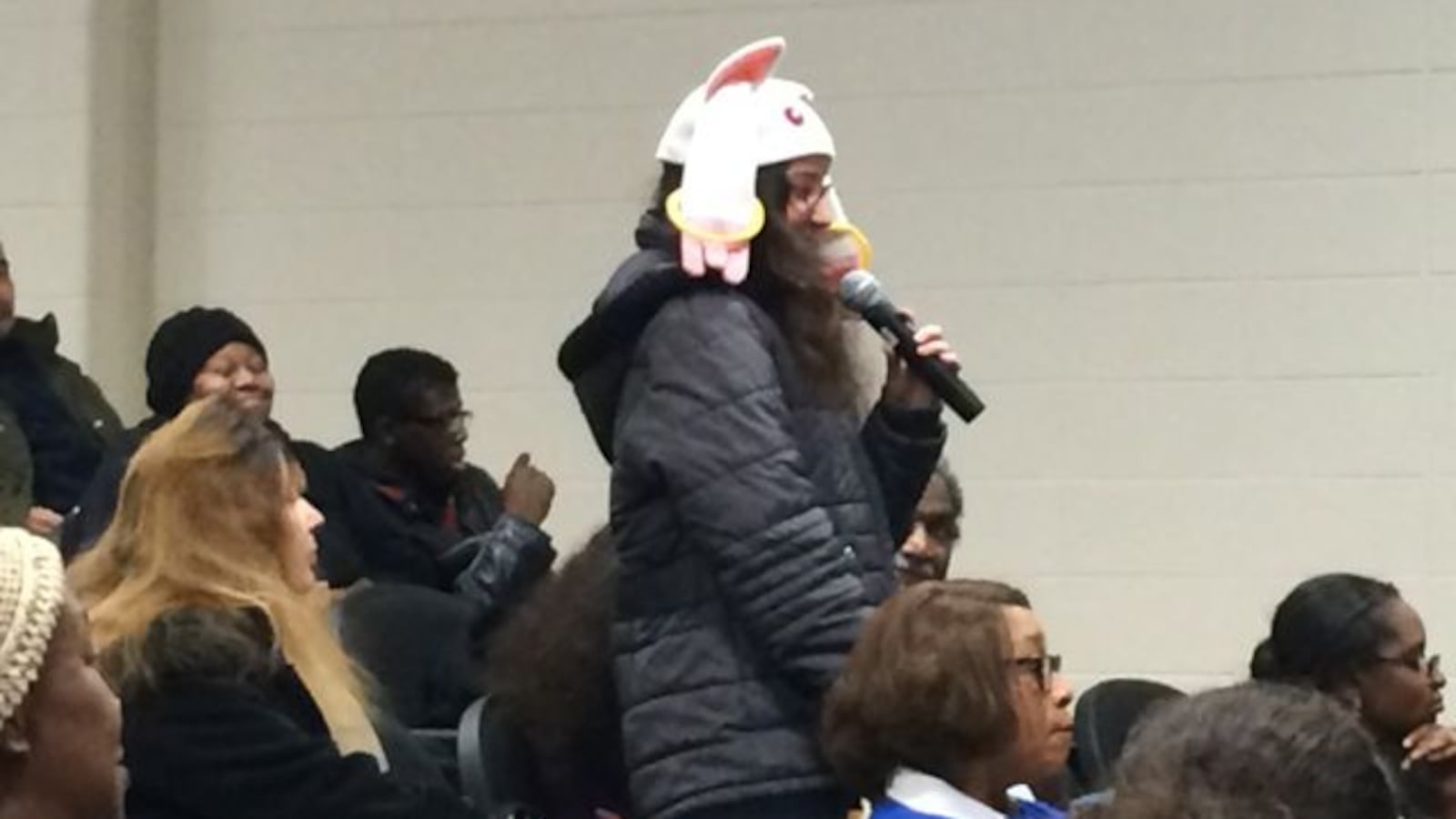The Indianapolis Public School Board pitched a proposal in September to merge Arlington and John Marshall high schools, but at a public feedback meeting Wednesday, several speakers said they were against the idea.
Retired IPS Principal Michael Chisley said he feared a combined school wouldn’t work.
“Anytime you merge two schools, you have problems,” he said.
The merger was the school board’s “preferred option” proposed to the Indiana State Board of Education late last year to win approval for Arlington to be returned to IPS control this summer after three years of outside management. The state board severed Arlington from the district after six straight years of F grades in 2012, handing it off to be run by Tindley Schools, a charter school operator.
But at the start of the school year, Tindley asked out of its contract, saying it could no longer afford to manage the school unless the state was willing to offer up more aid. It wasn’t.
IPS is eager to have the school back, but resistance to the idea of merger was so strong that Superintendent Lewis Ferebee stressed the board’s preference was not a final decision and other options would be considered.
“We’re going back to the drawing board,” Ferebee said. “Nothing’s off the table, nothing’s on the table. There’s a lot for us to consider and we want to ensure we think about every angle in terms of having a successful transition.”
Marshall is about five miles east of Arlington, serving a different neighborhood on the far East side of the city. The merger idea caught school and neighborhood leaders off guard when it was announced. Among the concerns of supporters of both schools is that mixing students from different neighborhoods together in a larger school could cause tension and fights.
English teacher Kathryn Council was one of several people concerned about student safety. She was one of about 60 people who attended the meeting.
“A lot of my students are super concerned about kids coming from John Marshall,” Council said. “I’ve heard them say ‘I don’t want to come back if John Marshall comes here.’ No kid should have to be afraid. School is supposed to be a safe haven.”
But Ferebee, who said IPS will soon start the process of hiring a new principal for Arlington, was less concerned, given that many IPS schools have students from different parts of town.
“There’s always this worry about ‘I’m from this neighborhood, you’re from that neighborhood,’” Ferebee said. “We’ll have an opportunity to have class together in a safe and orderly environment. Most of the time, our students get it right. I think some of the time, the adults struggle with that more than our students.”
Others at the public meeting said they hoped the Northeast side would come together to support the school, regardless of what it looks like next year.
“We cannot let Arlington go down the drain,” said Gloria Sam, a retired teacher who sent two children to IPS schools. “We’re going to have to use some elbow grease and get in the trenches and stop talking all the time and do the walking.”
Arlington is one of four IPS schools taken over by the state in 2012, plus one in Gary. It is the first takeover school to begin the process of returning to school district control. The transition back is expected to be complete by June.
What began as a tense relationship, with the takeover organizations complaining early on that IPS was resisting cooperation with them, has evolved into a workable arrangement, Ferebee said. IPS even took over ground maintenance, sports field maintenance and snow removal at Arlington to keep the school running this year after Tindley said it couldn’t afford to anymore.
“There is no division,” Ferebee said. “That’s done and in the past and we’re moving forward.”
But many questions remain about how the transition will work. A student speaker asked if the teachers she’s comes to rely on would stay employed at the new Arlington High School.
Tindley CEO Marcus Robinson said he’s not sure what will happen to current Arlington teachers, who are employed by Tindley, not IPS. He said he’d work with them to find jobs within other Tindley schools, but that many have developed an affinity for their students and may want to apply to IPS to stay at the building. Ferebee said teachers could apply to stay at the school.
“Our job right now is to make sure the transition is smooth,” Robinson. “It will come down to what the teacher really prefers. We want to see it work. We care very much about the future of this building and this school community.”

